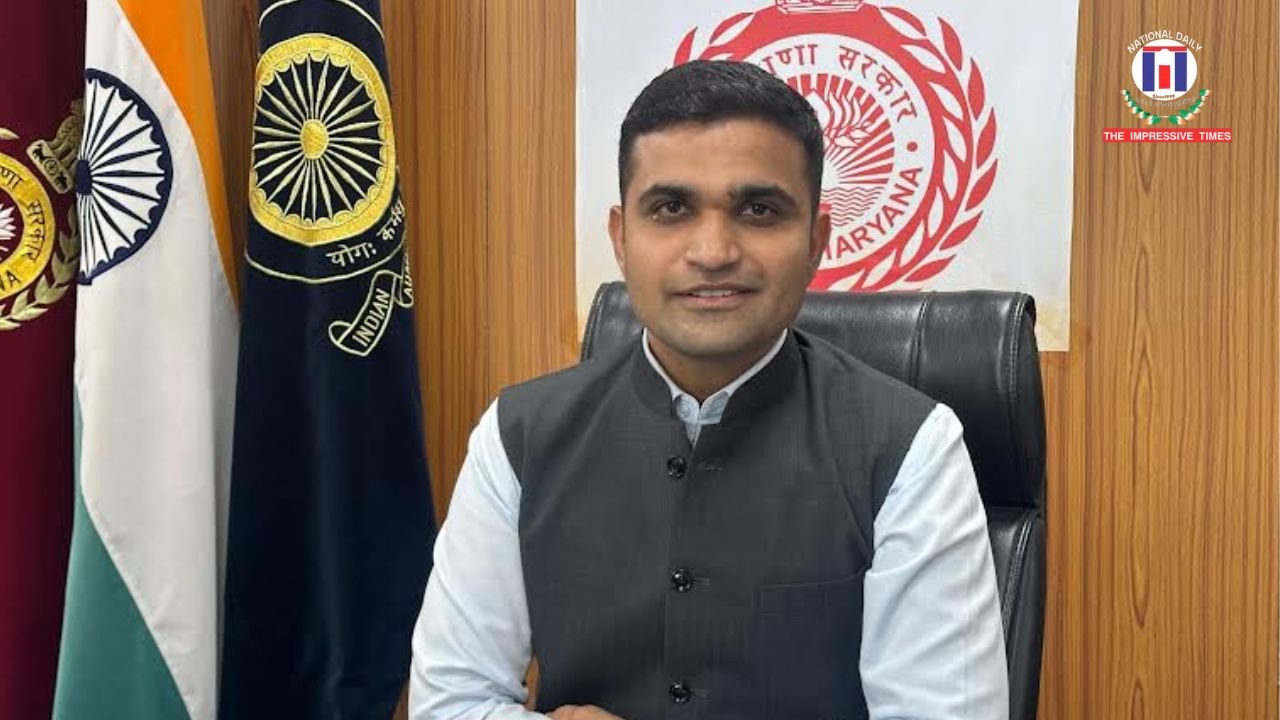
Faridabad, November 16: Deputy Commissioner Vikram Singh has emphasized the importance of strict adherence to the Graded Response Action Plan (GRAP-3) in order to combat the growing issue of air pollution, which he highlighted as a significant concern for public health. In a bid to curb pollution, the District Administration has enforced the GRAP-3 measures in Faridabad and surrounding areas as mandated by the Central Air Quality Management Commission (CAQMC).
Speaking on the matter, DC Vikram Singh acknowledged the adverse effects of increasing air pollution on the health of residents and stressed the urgent need for effective measures to mitigate its impact. He called for the active participation of every resident in the district in controlling air pollution through collective efforts.
GRAP-3 Measures Implemented in Faridabad
The district has officially implemented the restrictions under GRAP-3, which includes specific measures aimed at curbing the levels of air pollution in the region. The DC outlined the need for the departments concerned, including the Pollution Control Board, urban bodies, and industrial zones, to work collaboratively to address the growing pollution levels. He urged all stakeholders to adopt pollution control measures with utmost seriousness. “Adhering to the GRAP-3 guidelines is crucial, and it is our collective responsibility to ensure that pollution levels are reduced. We need everyone’s involvement to create a cleaner and healthier environment,” said DC Vikram Singh. He stressed that the pollution control measures should be executed effectively across the district to improve air quality and ensure that residents can breathe cleaner air.
The DC further instructed various departments, including the Pollution Control Board, Municipal Corporation, Haryana State Industrial and Infrastructure Development Corporation (HSIIDC), and other related bodies, to take stringent actions against violators of the GRAP-3 guidelines. He specifically called for regular checks on construction sites and industrial units to ensure compliance with pollution control measures. “These departments must work together to control the increasing pollution levels. The air quality index (AQI) must be monitored and managed at the grassroots level,” added Vikram Singh. He emphasized that the National Green Tribunal (NGT) guidelines must be followed strictly, with clear and effective enforcement of these regulations.
The DC stated that stringent action would be taken against those who violate the GRAP-3 rules. The Municipal Corporation, HSIIDC, and the Pollution Control Board were specifically directed to carry out regular inspections at construction sites and industrial units. Any violations or negligence of the GRAP-3 rules would be met with immediate action. He also urged these departments to monitor activities such as waste burning, particularly in high-dust areas, and to take necessary measures to prevent such practices, which contribute significantly to the worsening of air quality. “We must identify high-dust zones and take preventive measures to avoid further deterioration of air quality,” said the DC.
In addition to the above, DC Vikram Singh instructed authorities to implement water spraying at high-traffic locations and areas with significant dust pollution. Regular sprinkling of water on roads will help reduce dust levels and improve air quality in the city. He also called on Resident Welfare Associations (RWAs) and other local bodies to ensure compliance with the GRAP-3 rules by organizing awareness programs and actively participating in the pollution control initiatives.
The Chief Minister’s office, along with local authorities, is committed to ensuring the effective implementation of GRAP-3, with regular monitoring and enforcement of these pollution control measures. The authorities are hopeful that these combined efforts will lead to a significant improvement in air quality, benefiting the health and well-being of Faridabad’s residents.
Through these stringent actions, the district aims to minimize air pollution and promote a cleaner and healthier environment for its citizens.


















No Comments: